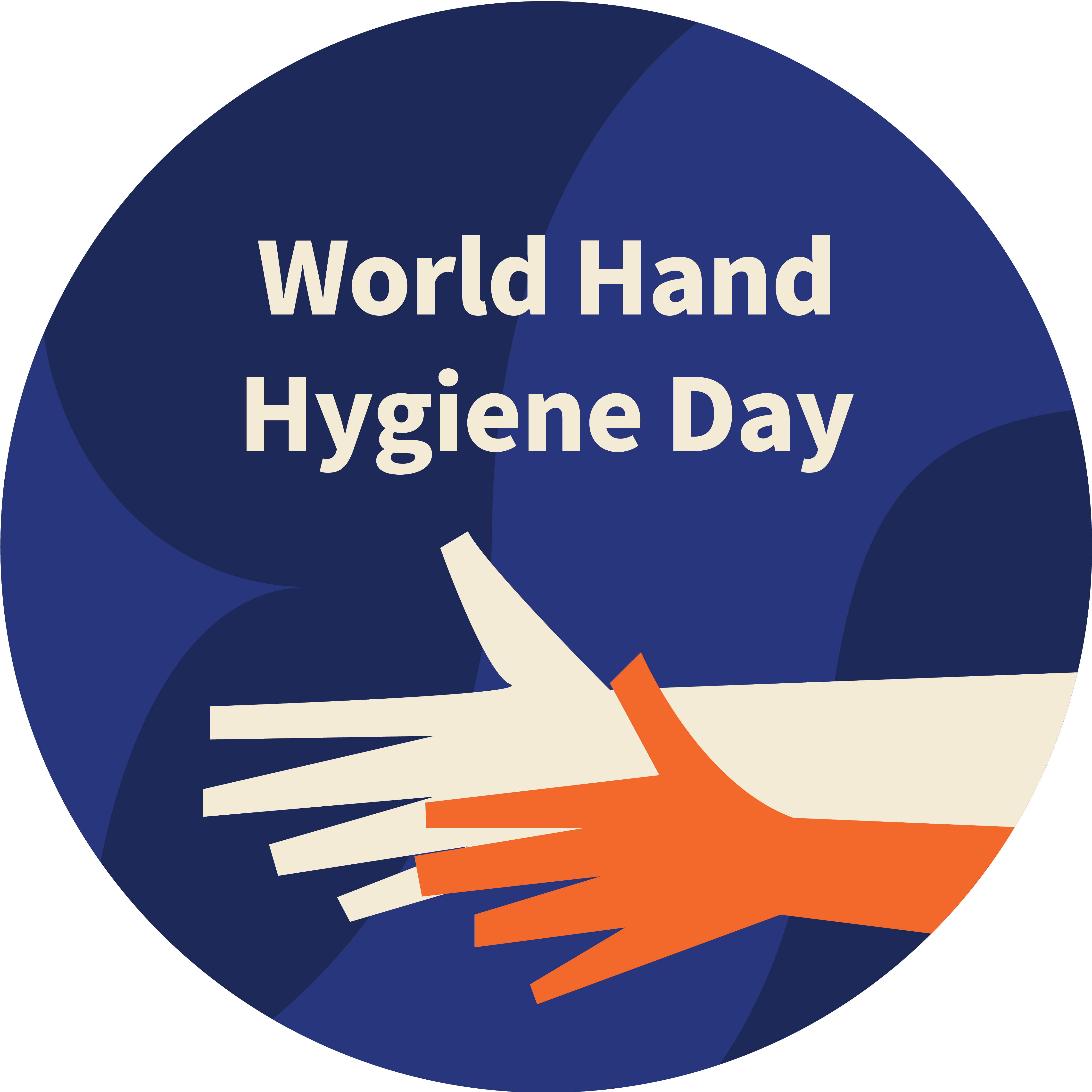Unprepared and unprotected: Graduating medical students’ knowledge, attitudes, and practices regarding drug-resistant tuberculosis in Cape Town, South Africa
DOI:
https://doi.org/10.3396/ijic.v17.21110Keywords:
tuberculosis, drug-resistance, occupational diseases, healthcare workers, safety, medical education, infection control, personal protective equipment, South AfricaAbstract
South Africa has a high burden of drug-resistant tuberculosis (DR-TB), which has a particularly high mortality among healthcare workers. Junior clinicians deliver key DR-TB services and require training in DR-TB management and prevention. This study aimed to investigate graduating medical students’ knowledge, attitudes, and practices relating to DR-TB, including management, infection control measures, and occupational health services. This cross-sectional, questionnaire-based study at the University of Cape Town, South Africa, recruited final year medical students and included 87 participants. The mean DR-TB knowledge score was 4.7 points (95% confidence interval [CI]: 4.42–5.06, maximum score 8 points). Students reported challenges in accessing respiratory protection, with half (47.7%) struggling to find an N95 respirator when needed. DR-TB exposure was reportedly common. Three students reported prior TB disease, approximately half (n = 49, 55.9%) reported personal concern of active DR-TB disease during undergraduate studies, and the majority (n = 80, 91.9%) correctly perceived themselves to be at increased risk compared to the general population. Medical students are currently unprepared for their role in managing DR-TB in South Africa and unprotected against occupational illness during their studies. This should be addressed in undergraduate curricula and in establishing comprehensive occupational health policies. Resilient personal protective equipment (PPE) supply chains, infection control training, and comprehensive occupational health support have relevance to both DR-TB and novel pathogens, such as severe acute respiratory syndrome coronavirus 2 (SARS-CoV-2).
Downloads
References
In Memoriam: healthcare workers who have died of COVID-19. Medscape Medical News; 2020. Available from: https://www.medscape.com/viewarticle/927976 [cited 16 November 2020].
Law T. Health care workers around the world are sharing bruised, exhausted selfies after hard days treating COVID-19 patients. Time; 2020. Available from: https://time.com/5807918/health-care-workers-selfies-coronavirus-covid-19/ [cited 24 August 2020].
Ehrlich R, Spiegel JM, Adu P, Yassi A. Current guidelines for protecting health workers from occupational tuberculosis are necessary, but not sufficient: towards a comprehensive occupational health approach. Int J Environ Res Public Health 2020; 17(11): 1–11. doi: 10.3390/ijerph17113957
Bhaumik S, Moola S, Tyagi J, Nambiar D, Kakoti M. Community health workers for pandemic response: a rapid evidence synthesis. BMJ Glob Health 2020; 5(6): 1–20. doi: 10.1136/bmjgh-2020-002769
World Health Organisation. Global tuberculosis report 2020. Geneva, Switzerland; 2020. Available from: https://www.who.int/publications/i/item/9789240013131 [cited 20 October 2020].
South African National Department of Health. Multi-drug resistant tuberculosis: a policy framework on decentralised and deinstitutionalised management for South Africa. 2019. Available from: http://www.health.gov.za/2014-08-15-12-53-24/category/535-2019-policies-and-guidelines?download=3751:policy-framework-on-decentralised-management-of-mdr-tb-may-2019 [cited 15 July 2020].
Van de Water BJ, Silva SG, Bettger JP, Humphreys J, Cunningham CK, Farley JE. Provision of guideline-based care for drug- resistant tuberculosis in South Africa: level of concordance between prescribing practices and guidelines. PLoS One 2018; 13(11): e0203749. doi: 10.1371/journal.pone.0203749
Dharmadhikari AS, Mphahlele M, Venter K, Stoltz A, Mathebula R, Masotla T, et al. Rapid impact of effective treatment on transmission of multidrug resistant tuberculosis. Int J Tuberc Lung Dis 2014; 18(9): 1019–25. doi: 10.5588/ijtld.13.0834
Gandhi NR, Weissman D, Moodley P, Ramathal M, Elson I, Kreiswirth BN, et al. Nosocomial transmission of extensively drug-resistant tuberculosis in a rural hospital in South Africa. J Infect Dis 2013; 207: 9–17. doi: 10.1093/infdis/jis631
Nathavitharana RR, Lederer P, Tierney DB, Nardell E, Israel B, Medical D. Treatment as prevention and other interventions to decrease MDR-TB transmission. Int J Tuberc 2019; 23(4): 396–404. doi: 10.5588/ijtld.18.0276
O’Donnell M, Jarand J, Loveday M, Padayatchi N, Zelnick J, Werner L, et al. High incidence of hospital admissions with multidrug resistant and extensively drug resistant tuberculosis among South African health care workers. Ann Intern Med 2010; 153(8): 516–22. doi: 10.7326/0003-4819-153-8-201010190-00008
Menzies D, Joshi R, Pai M. Risk of tuberculosis infection and disease associated with work in health care settings. Int J Tuberc Lung Dis 2007; 11(6): 593–605. Available from: https://pubmed.ncbi.nlm.nih.gov/17519089/ [cited 08 July 2020]
Tibebu H, HeboHJ . The proportion of student tuberculosis cases and treatment outcome at Jimma University Medical Center: 5-year retrospective study. Tuberc Res Treat 2019. doi: 10.1155/2019/4597154
Basavaraj A, Chandanwale A, Patil A, Kadam D, Joshi S, Gupte N, et al. Tuberculosis risk among medical trainees, Pune, India. Emerg Infect Dis 2016; 22(3): 541–3. doi: 10.3201/eid2203.151673
Joshi R, Reingold AL, Menzies D, Pai M. Tuberculosis among health care workers in low- and middle-income countries: a systematic review. PLoS One 2006; 3(12): e494. doi: 10.1371/journal.pmed.0030494
Pardeshi GS, KadamD , ChandanwaleA , Deluca A, Khobragade P, Parande M, et al. Tuberculosis risk perceptions among medical residents at a tertiary care center in India. Tuberc Res Treat 2017; 1: article 75814857. doi: 10.1155/2017/7514817
Verkuijl S, Middelkoop K. Protecting our front-liners: occupational tuberculosis prevention through infection control strategies. Clin Infect Dis 2016; 62(Suppl 3): 231–7. doi: 10.1093/cid/civ1184
Van der Westhuizen H-M, Dramowski A. When students become patients: TB disease among medical undergraduates in Cape Town, South Africa. S Afr Med J 2017; 107(6): 475. doi: 10.7196/SAMJ.2017.v107i6.12260
Von Delft A, Dramowski A, Sifumba Z, Mosidi T, Ting TX, Von Delft D, et al. Exposed, but not protected: more is needed to prevent drug-resistant tuberculosis in healthcare workers and students. Clin Infect Dis 2016; 62(July): S275–80. doi: 10.1093/cid/ciw037
Malangu N, Adebanjo OD. Knowledge and practices about multidrug-resistant tuberculosis amongst healthcare workers in Maseru. Afr J Prim Health Care Fam Med 2015; 7(1): 423–8. doi: 10.4102/phcfm.v7i1.774
Naidoo S, Esterhuizen T, Knight S, Jinabhai CC. Changes in healthcare workers’ knowledge about tuberculosis following a tuberculosis training programme. Educ Health 2011; 24(2): 514–20. Available from: https://www.researchgate.net/publication/51796655_Changes_in_healthcare_workers’_knowledge_about_tuberculosis_following_a_tuberculosis_training_programme [cited 15 July 2020].
Minnery M, Contreras C, Pérez R, Solórzano N, Tintaya K, Jimenez J. A cross-sectional study of knowledge and attitudes towards tuberculosis amongst front-line tuberculosis personnel in high burden areas of Lima, Peru. PLoS One 2013; 8(9): e75698. doi: 10.1371/journal.pone.0075698
Noé A, Ribeiro RM, Anselmo R, Maixenchs M, Sitole L, Munguambe K, et al. Knowledge, attitudes and practices regarding tuberculosis care among health workers in Southern Mozambique. BMC Pulm Med 2017; 17(1): 1–7. doi: 10.1186/s12890-016-0344-8
Dodor EA, Kelly SJ. Manifestations of tuberculosis stigma within the healthcare system: the case of Sekondi-Takoradi Metropolitan district in Ghana. Health Policy 2010; 98(2–3): 195–202. doi: 10.1016/j.healthpol.2010.06.017
Daftary A, Padayatchi N. Provider perspectives on drug-resistant tuberculosis and human immunodeficiency virus care in South Africa: a qualitative case study. Int J Tuberc Lung Dis 2016; 20(July): 1483–8. doi: 10.5588/ijtld.16.0111
Tudor C, Mphahlele M, Walt M Van Der, Farley JE. Health care workers’ fears associated with working in multidrug- and/or extensively-resistant tuberculosis wards in South Africa. Int J Tuberc Lung Dis 2013; 17(March): 22–9. doi: 10.5588/ijtld.13.0109
Probandari A, Sanjoto H, Mahanani MR, Azizatunnisa L, Widayati S. Being safe, feeling safe, and stigmatizing attitude among primary health care staff in providing multidrug-resistant tuberculosis care in Bantul District, Yogyakarta Province, Indonesia. Hum Resour Health 2019; 17(1): 16. doi: 10.1186/s12960-019-0354-8
Hane F, Thiam S, Fall AS, Vidal L, Diop AH, Ndir M, et al. Identifying barriers to effective tuberculosis control in Senegal: an anthropological approach. Int J Tuberc Lung Dis 2007; 11(5): 539–43. Available from: https://pubmed.ncbi.nlm.nih.gov/17439678/ [cited 19 October 2020].
Behnaz F, Mohammadzade G, Mousavi-e-roknabadi RS, Mohammadzadeh M. Assessment of knowledge, attitudes and practices regarding tuberculosis among final year students in Yazd, Central Iran. J Epidemiol Glob Health 2014; 4: 81–5. doi: 10.1016/j.jegh.2013.09.003
Dheda K, GumboT , MaartensG , DooleyK , McNerneyR , MurrayM, et al. The epidemiology, pathogenesis, transmission, diagnosis, and management of multidrug-resistant, extensively drug-resistant, and incurable tuberculosis. Lancet Respir Med Comm 2017; s2600(17)30079–6. Available from: https://pubmed.ncbi.nlm.nih.gov/28344011/ [cited 15 July 2020].
Tola HH, Tol A, Shojaeizadeh D. Tuberculosis treatment non-adherence and lost to follow up among TB patients with or without HIV in developing countries: a systematic review. Iran J Public Health 2015; 44(1): 1–11. Available from: https://pubmed.ncbi.nlm.nih.gov/26060770/ [cited 08 July 2020].
Western Cape Department of Health. Clinical guidelines and standard operating procedure for the implementation of the short and long DR-TB regimens for adults, adolescents and children. 2018. Available from: https://www.westerncape.gov.za/assets/departments/health/tuberculosis_-_dr-tb_clinical_guidelines_2018.pdf [cited 20 October 2020].
Van der Westhuizen H-M, Kotze K, Narotam H, Von Delft A, Willems B, Dramowski A. Knowledge, attitudes and practices regarding TB infection control among health science students in a TB-endemic setting. Int J Infect Control 2015; 11(4): 1–7. doi: 10.3396/ijic.v11i4.030.15
Cox HS, McDermid C, Azevedo V, Muller O, Coetzee D, Barnard M, et al. Epidemic levels of drug resistant tuberculosis (MDR and XDR-TB) in a high HIV prevalence setting in Khayelitsha, South Africa. PLoS One 2010; 5(11): e13901. doi: 10.1371/journal.pone.0013901
Johnson R, Warren RM, van der Spuy GD, van Pittius NCG, Theron D, Streicher EM, et al. Drug-resistant tuberculosis epidemic in the Western Cape driven by a virulent Beijing genotype strain. Int J Tuberc Lung Dis 2010; 14(August 2009): 119–21. Available from: https://pubmed.ncbi.nlm.nih.gov/20003705/ [cited 15 July 2020].
Van Rie A, Warren R, Richardson M, Gie RP, Enarson DA, Beyers N. Classification of drug-resistant tuberculosis in an epidemic area. Lancet 2000; 356: 22–5. doi: 10.1016/S0140-6736(00)02429-6
Johnson R, Warren R, Strauss OJ, Jordaan AM, Falmer AA, Beyers N, et al. An outbreak of drug-resistant tuberculosis caused by a Beijing strain in the Western Cape, South Africa. Int J Tuberc Lung Dis 2006; 10(June): 1412–4. Available from: https://www.ncbi.nlm.nih.gov/pmc/articles/PMC3647643/ [cited 15 July 2020].
Shah N, Auld S, Brust J, Mathema B, Ismail N, Moodley P, et al. Transmission of extensively drug-resistant tuberculosis in South Africa. N Engl J Med 2017; 376(3): 243–53. doi: 10.1056/NEJMoa1604544
Rumende CM. Risk factors for multidrug-resistant tuberculosis. Indones J Intern Med 2018; 50(1): 1–2. Available from: https://pubmed.ncbi.nlm.nih.gov/29686169/ [cited 19 October 2020].
Von Delft A, Dramowski A, Khosa C, Kotze K, Lederer P, Mosidi T, et al. Why healthcare workers are sick of TB. Int J Infect Dis 2015; 32: 147–51. doi: 10.1016/j.ijid.2014.12.003
Sanchez-Reilly S, Morrison LJ, Carey E, Neill LO, Kapo J, Periyakoil VS, et al. Caring for onseself to care for others: physicians and their self-care. J Support Oncol 2013; 11(2): 75–81. doi: 10.12788/j.suponc.0003
Ayala EE, Winseman JS, Johnsen RD, Mason HRC. U.S. medical students who engage in self-care report less stress and higher quality of life. BMC Med Educ 2018; 18: 189–98. doi: 10.1186/s12909-018-1296-x
TB Proof. TB Infection Prevention and Control (IPC) Training. Available from: https://www.tbproof.org/ipc-training/ [cited 22 May 2020].
Richardson J. Miss South Africa: Tamaryn Green continues the fight to break the stigma surrounding TB. The South African; 2019 Mar. Available from: https://www.thesouthafrican.com/lifestyle/miss-south-africa-tamaryn-green-break-the-stigma-surrounding-tb/ [cited 20 October 2020].
Chaib F. Shortage of personal protective equipment endangering health workers worldwide. World Health Organisation; 2020 Mar. Available from: https://www.who.int/news/item/03-03-2020-shortage-of-personal-protective-equipment-endangering-health-workers-worldwide [cited 20 October 2020].
South African National Department of Employment and Labour. Compensation for Occupational Injuries and Diseases Act: compensation for occupationally-acquired novel coronavirus disease (COVID-19). 193 of 2020. Pretoria, South Africa: South African National Government. 2020, p. 3–11.
Omotoso K, Koch S. South African trends in medical aid coverage and stated healthcare-seeking preferences: 2004–14. Dev South Afr 2017; 34(5): 575–92. doi: 10.1080/0376835X.2017.1360175
Nathavitharana R, Bond P, Dramowski A, Kotze K, Lederer P, Oxley I, et al. Agents of change: the role of healthcare workers in the prevention of nosocomial and occupational tuberculosis. Press Med 2015; 25(4): 368–79. Available from: https://discovery.ucl.ac.uk/id/eprint/10048873/ [cited 08 July 2020].
Additional Files
Published
How to Cite
Issue
Section
License
Authors retain copyright of their work, with first publication rights granted to IJIC. Read the full Copyright- and Licensing Statement.




